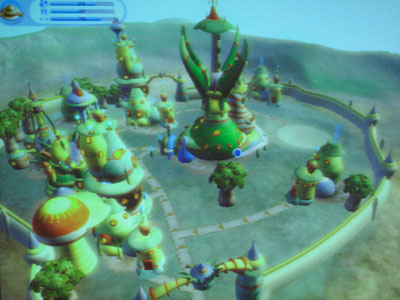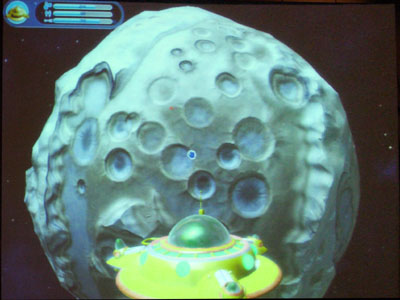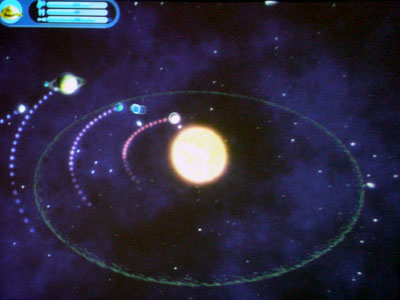- Update October 10 2006: OK, images of Spore are all over. I have put the images back online.
- Update March 3rd 2006: You can see the video of Will Wright’s presentation here.
- Update March 23rd 2005: I have inquired with Maxis/EA and found that the screenshots should not be distributed. They have been permanently removed, sorry.
By popular demand, more pictures from Will Wright’s Spore video game demo at Game Developer’s Conference:
The amoeba stage:

On land:

(At this point, we all thought “wow, they really put in a lot of stuff in this game!”)
The Sim City-style mode:

Planet mode:

Solar system mode:

Galaxy:

Should provide entertainment for a few afternoons.



